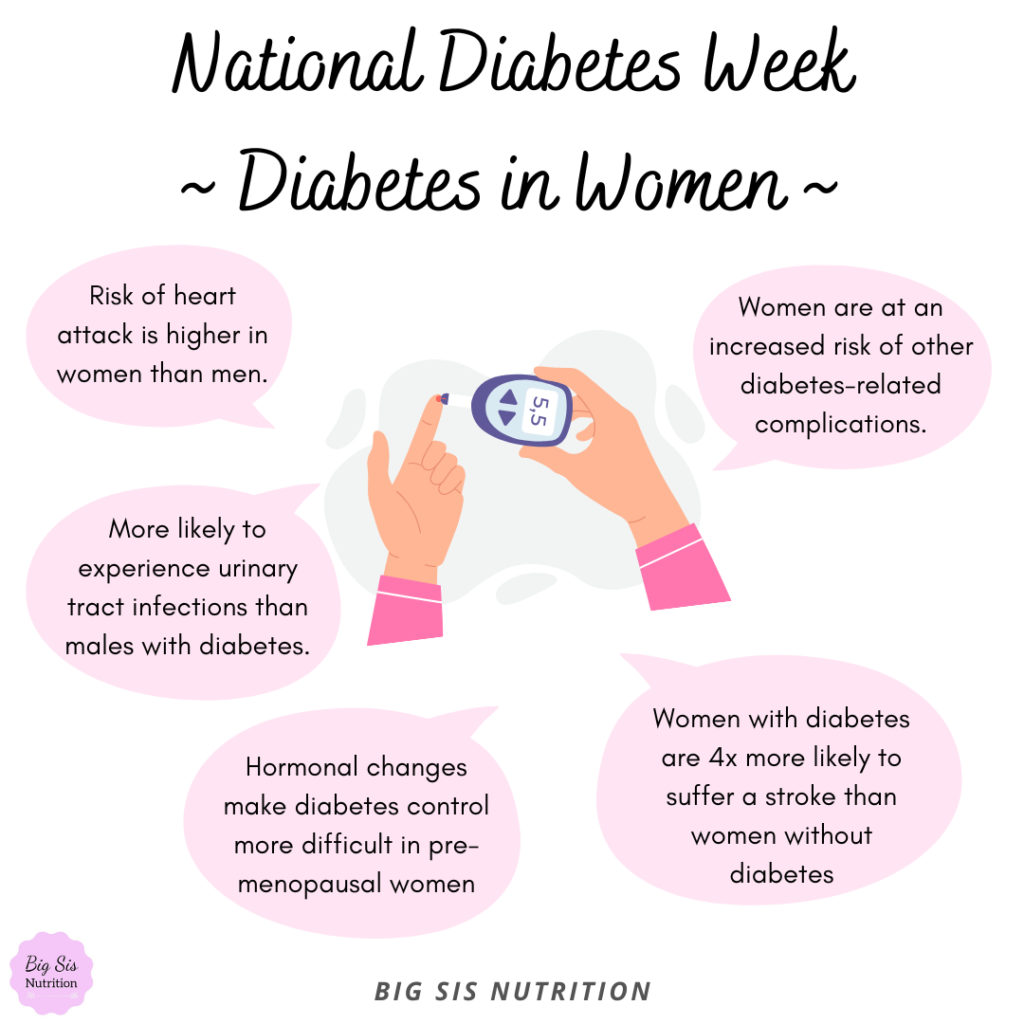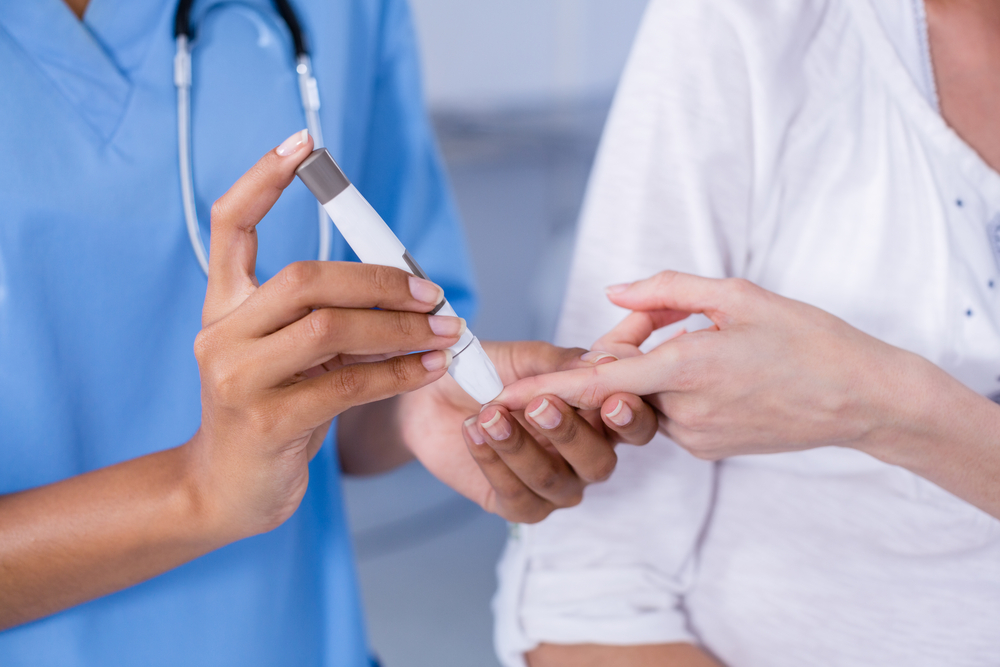Being diagnosed with a chronic health condition can be overwhelming. Hearing the word “diabetes” can also elicit questions about what to eat, how to eat, and the overall impact of diabetes on your health.
One question that might not pop up, is the impact of diabetes on fertility. While its impact on overall health is well-known, its effects on fertility are not often discussed. In this blog post, we will explore how diabetes can influence fertility in both men and women, shedding light on the challenges it presents and how we can mitigate these impacts with lifestyle and nutrition.
What is diabetes?
Diabetes is a prevalent chronic condition that affects millions of individuals worldwide. According to Oxford dictionary, diabetes is defined as “a disease in which the body’s ability to produce or respond to the hormone insulin is impaired, resulting in abnormal metabolism of carbohydrates and elevated levels of glucose in the blood”.
There are multiple types and presentations of diabetes, however the three most common are:
Type 1 diabetes (T1DM)
Often occurs in childhood or adolescence and is an autoimmune condition. In type 1 diabetes, cells in the pancreas (called beta cells), are unable to produce insulin (a hormone).
Type 2 diabetes (T2DM)
Occurs when the body does not recognise insulin, so blood glucose levels become elevated. The body gradually loses the ability to produce enough insulin. Type 2 diabetes makes up to 90% of all diabetes cases. There is a strong genetic component, however is often also strongly associated with lifestyle factors.
Gestational diabetes (GDM)
Occurs in pregnancy. This happens when higher than normal blood glucose levels are diagnosed during pregnancy. Most people will not continue to have diabetes once their baby is born, however for some these high blood glucose levels continue after delivery. 5-10% of pregnant people will develop gestational diabetes. For the purposes of this piece, I am referring type 1 and type 2 diabetes overall when I use the term “diabetes”.
Impacts on Fertility
Diabetes can have various impacts on fertility in both men and women. In females, diabetes can impact the following areas of fertility
Irregular Menstrual Cycles and reduced ovulation
Diabetes can disrupt the delicate hormonal balance in women, leading to irregular menstrual cycles. This irregularity can make it challenging to predict ovulation, extending the time it takes to conceive. This occurs due to the impact of insulin in the body, which acts on the way ovaries produce the key hormones involved in ovulation. Women with diabetes may experience reduced ovulation or anovulation, further complicating the process of conceiving. Hormonal changes in women across the menstrual cycle can make diabetes management more difficult, as the hormones can wreak havoc with insulin and blood sugar regulation.
Relationship with other health conditions
Polycystic Ovary Syndrome (PCOS) is another hormonal condition where the ovaries are impacted. One of the common symptoms of PCOS is insulin resistance. Having PCOS can increase a persons risk of diabetes in future. PCOS is one of the most common causes of ovulatory infertility. As type 1 diabetes is an autoimmune condition, it can co-exist with other autoimmune conditions such as coeliac disease, and thyroid issues. These can impact fertility on their own, and in conjunction with one another.
Pregnancy Complications
Unmanaged diabetes during pregnancy can increase the risk of miscarriage and birth defects, which shows just why it is so important to manage diabetes. Higher blood glucose and insulin levels can impact a growing baby and placenta.
Male Fertility
The impact of diabetes on fertility is not limited to only the female counterpart.
Erectile dysfunction can become an issue for those with diabetes. High blood sugar levels can cause damage to blood vessels and nerves, including those in the genitals. This can make it difficult to achieve or maintain an erection, which could make sexual intercourse more difficult. This extends to ability to efficiently ejaculate (kind of important for baby making).
Every measure of sperm quality (shape, movement and total sperm count) is reduced. Research has shown that diabetes is associated with increased damage of DNA in sperm, that impacts the ability for the sperm to create a viable embryo.
It’s important to note that the impact of diabetes on fertility can be influenced by several factors, such as the type of diabetes (Type 1 or Type 2), the level of blood sugar control, the presence of other medical conditions, and overall health. Managing diabetes well through lifestyle changes, medication, and regular check-ups can help reduce the negative effects on fertility.

Top 3 nutrition tips for living with diabetes
1. Choose low GI (glycaemic index) carbohydrates
The glycaemic index is a measure of how quickly a carbohydrate food is released into the bloodstream and how quickly it impacts the blood sugars. Low GI foods are released more slowly for a nice stable steady release of glucose into the bloodstream. This can be helpful in managing blood sugar spikes. Some low GI carbohydrates include:
– Basmati rice
– Rolled oats
– Multigrain bread
– Lentils
– Chickpeas
2. Be mindful of your portion of carbohydrates
When I work with my clients, there are a few T’s I use to help in explaining the concepts of nutrition management of diabetes. One is “Type” and secondly is “Total”. Having a large portion of a low GI carbohydrate, will likely still lead to a spike in blood sugars. To manage the “total” carbohydrate, it is important you are balancing out the meal with a mixture of nutrients. As a ratio, a meal should consist of half vegetables, a quarter lean protein, and a quarter low GI carbohydrate. This doesn’t read very smoothly of course, but if you think of a plate, we want to fill only a quarter of the plate with a carbohydrate portion.
3. Focus on adding rather than subtracting
Having a chronic condition such as diabetes can feel overwhelming. This can make planning meals a bit difficult when it feels as though everything is “bad” or “wrong”. In this case, it is nice to focus on the things we can add more off to balance our meal. When in doubt, always add more vegetables, herbs, and spices. By adding more vegetables, unintentionally you are focusing on increasing this portion, and having a smaller to medium portion of carbohydrates and lean protein.
The most important “take home” message of this is that those with well managed diabetes don’t necessarily have poorer outcomes. Adopting a healthy lifestyle, including a balanced diet, regular exercise, and maintaining a healthy weight, can positively impact fertility and help manage diabetes. Proper management of blood sugar levels is crucial for reducing the impact of diabetes on fertility. Regular monitoring, adherence to medication, and insulin therapy (if required) are essential aspects of this control.
If you or your partner are concerned about diabetes and its potential impact on fertility, it’s essential to consult a healthcare professional who can provide personalized advice and guidance based on your specific situation. Additionally, preconception counselling and early pregnancy care are vital for women with diabetes to optimize their chances of a healthy pregnancy and baby.
Seeking professional medical advice and support is essential for optimizing fertility outcomes while managing diabetes effectively. Remember, knowledge and proactive steps can pave the way for a successful journey towards parenthood, even in the face of diabetes.
Book an Appointment Today
Don’t let diabetes hold you back from starting your family. Book a session today if you feel like you need some help managing your fertility with diabetes by seeing a fertility dietitian. Learn how a balanced diet can make a huge difference in your journey towards motherhood. At Big Sis Nutrition, the goal is to support you in your journey to a healthy pregnancy!


